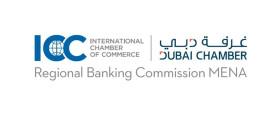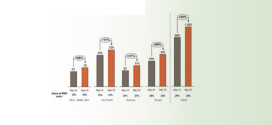Innovation and diversification have provided sustained and significant global growth opportunities for Sukuk and the investor base is expected to widen dramatically in the coming years.
This was one of the conclusions announced when the National Bank of Abu Dhabi (NBAD) and CNBC, the business and financial news network, hosted an international panel of leading Islamic finance experts to discuss the future of Sukuk in London. As for the year ahead, the panellists said that they expected global Sukuk issuance to reach $145bn in 2015.
They also agreed that demand for Sukuk significantly outweighs supply, and that there was “growing investor appetite for more diverse investment opportunities”.
During the event, which was attended by more than 70 industry professionals, the panellists highlighted the importance of innovation and a greater diversity of issuers in order to satisfy demand and create a deeper market.
Ultimately, the debate centred on the potential for Sukuk to become a major financing tool and mainstream asset class. The panellists recognised that much had been done in recent years to standardise the Sukuk structuring process and make it more efficient but they felt that Western institutions need to work closer with Shari’a boards to encourage more traditionally conventional issuers to tap the Islamic market.
Alex Thursby, NBAD’s group chief executive officer, said: “As one of the world’s leading Sukuk arrangers, we believe there is a significant opportunity for multinationals to raise capital by issuing Shari’a compliant instruments.
“Sukuk, with its unique structure and characteristics, provides a compelling alternative to a conventional bond and offers a wide access to liquid assets.
“Our role as a leading financial institution in the region is to nurture the growth of the Islamic finance industry and drive economic activities and growth across the West-East Corridor.”
 Cash And Trade Magazine For Cash and Trade professionals in the Middle East
Cash And Trade Magazine For Cash and Trade professionals in the Middle East




